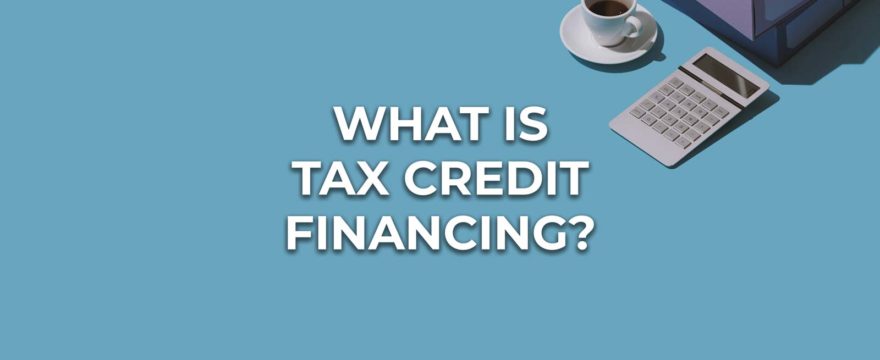
To elevate Canada as a global player in the market, the Government offers tax credits to eligible corporations. These tax credits enable businesses to conduct groundbreaking research, increase their share in the market, yield higher earnings, and enhance productivity. Tax credit financing is a creative non-dilutive funding solution that allows companies to access these incentives sooner, helping them scale up, boost the nation’s economy, and much more.
What are Business Tax Credits?
As the name suggests, business tax credits are given exclusively to companies for eligible activities. When businesses receive the credits, they apply them to their tax return to reap the benefits.
A business may receive either refundable or non-refundable tax credits. Non-refundable credits are reserved for companies with income tax payable and determined by the tax amount they owe. Conversely, refundable credits, such as the first $3M of an accrued SR&ED refund, are granted to the business whether it has income tax payable or not.
For example, say a business accrues eligible expenses for research and development (R&D) but not taxable income during the fiscal year. While it will not owe taxes, it can still access government funding through refundable tax credits. This system allows companies to receive government incentives, even if they are pre-revenue. It’s worth noting that companies that do need to pay income tax can still receive refundable tax credits.
Many business activities qualify for tax credits, including infrastructure upgrades, digital expansion, sustainability efforts, and market diversification. Government and provincial bodies also extend tax credits to companies involved in innovation endeavours, such as scientific research and experimental development (SR&ED).
How Do Tax Credits Differ from Other Incentives?
Besides refundable and non-refundable tax credits, businesses may also attain tax deductions. Whereas tax credits mitigate a business’s tax liability, a deduction lowers its taxable income. Since business tax credits are designed specifically for businesses, they are a more significant incentive than deductions.
Who Qualifies to Receive Tax Credits?
Regardless of the specific tax credit, a business seeking to obtain it must fulfill certain requirements during the fiscal year to be eligible for funding. Once they meet the criteria, they can file the necessary tax credit forms with their income tax return at year-end. In some cases, companies can also request an Advance Ruling from the Canada Revenue Agency (CRA), or provincial governing body, to verify that they qualify for the tax credit at the end of the fiscal year.
How Does Tax Credit Financing Work?
While tax credits give Canadian businesses substantial funding to pay for eligible expenses, they aren’t accessible right away. Usually, they are only disbursed annually after claims are filed at tax time. Some organizations, such as Easly, finance these tax credits to help enterprises access their funds sooner. Since many of these tax credits are refundable, businesses use them as collateral for financing.
Financing companies use the security of future tax credits to extend a loan, giving enterprises capital to invest in growth and innovative projects. Businesses can use this money to fund ongoing activities or conduct other eligible work and increase the refund they will receive from the CRA.
Can I Finance SR&ED Tax Credits?
One of the most common business efforts that tax credits support is R&D, particularly from the SR&ED tax incentive program. As the largest federal program for R&D in Canada, the SR&ED initiative provides over $3 billion in tax incentives to more than 20,000 claimants every year. These tax credits encourage Canadian enterprises of all sizes and across numerous industries to innovate within the country.
Eligible SR&ED expenses are analytical or experimental activities designed to advance scientific or technological knowledge, such as basic and applied research. Experimental development projects that lead to novel products, services, and processes may qualify as SR&ED expenditures.
Most businesses earn SR&ED tax credits as cash refunds, but they may acquire them as income tax deductions in certain cases. Canadian-controlled private corporations (CCPCs) may receive a refundable ITC at a 35% rate on eligible SR&ED expenses totalling $3 million and a non-refundable ITC at a 15% rate for eligible expenses over $3 million. Some provinces also offer additional tax credits for eligible R&D work conducted within the province.
How Easly Can Help
If your company plans to accrue SR&ED tax credits on pioneering initiatives, turn to Easly for fast financing. By aligning with SR&ED program requirements set by the Canadian Government, we bring tax credit refunds forward to help companies gain this capital sooner. With our Capital-as-a-Service (CaaS) platform, businesses have access to on-demand and non-dilutive funding. Although this funding will not support an enterprise entirely, it serves as the ideal addition to an existing capital mix.
To learn more about tax credit financing, schedule an introductory call with Easly today.
.png)
.png)
.png)
